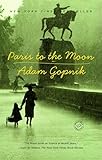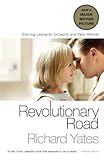
Each man’s middle age crisis begins at an indeterminate age and offers a peculiar window into the architecture of masculine decline. In this respect it mimics death, which is both punctual and ruthlessly efficient in its demolitions. For many men, the crisis begins with the fear that your Emersonian Self-Reliance is spent, or even worse, you’ve sucked so deeply on the marrow of life that you are now as penniless as Henry David Thoreau.
In my case, the crisis has arrived at the age of 39 with the realization that I’m numerically closer to 48 than I am to 29. Now this isn’t to suggest my twenties were a time of wine and roses, but simply to make the point that 48 is old—crotchety old in my book, as in Mr. Roper the curmudgeonly landlord in Three’s Company or the portly short-order cook Mel Sharples from Alice (I’m painfully aware that younger readers may find these 1970s references both dated and horridly nostalgic). And the reason that 48 is old, of course, is that it is two steps from 50, which is not the new 20 or the new 30, but the old half-century mark, period.
I proudly note that my crisis has not involved acting out cultural stereotypes — there have been no impulsive trips to the Corvette dealership or expensive gym memberships — but centers instead on Wikipedia entries and male celebrities over the age of 40. It plays out like this: night after night I Google celebrities as they flash across my television screen, not only looking up their age, but trying to get a handle on what they’ve accomplished by 40 — and even more importantly — what great achievements are possible in the 5th, 6th, and even 7th decades of one’s life.
I quickly realized Wikipedia was indispensable for such queries, for its entries list a person’s date of birth up front, along with paragraphs on the celebrity’s early life, professional career, and personal life. Armed with accurate chronologically-based facts, I learned how little I’d accomplished by 39 in relation to say, Charlie Sheen, who though he is clearly in a class by himself when it comes to the middle age crisis, did have impressive films like Platoon and Wall Street on his resume years before tiger blood and Twitter.
Over time my Wikipedia research has uncovered the dark underbelly of my own crisis, which isn’t that I fear death to be imminent, but that I regret the years I squandered in my twenties and thirties loitering through time and space. As a result, my non-existent Wikipedia listing has nothing about the spellbinding novel I’ve written, the legendary appearances on the Charlie Rose Show, the critically-acclaimed performance in Sofia Coppola’s recent dreamy bio-epic on Morrissey or my special friendship with writer Christopher Hitchens.
Speaking of Charlie Rose, I know from Wikipedia that he was born in 1942, which if you do the math makes him 69. From my crisis point of 39, I can comfort myself by thinking, “Okay, after the age of 40, Charlie lived 29 more years where he did some of his best work.” I scan down to the “Career” section of his biography where I find the real gem in his entry: he didn’t begin the Charlie Rose Show until 1991 at the mature age of 49. This means I still have 10 more years to finish the novel and/or bump into Sofia Coppola on the streets of Paris.
Watching the news over the last two months I’ve become curious about former IMF Chief Dominique Strauss Kahn (DSK). It turns out that DSK is 62 years old, seven years younger than Charlie Rose, but arguably less attractive, although we’d need a woman between the age of 35 and 50 to confirm this. And although he’s shaped like a beet and not particularly handsome, it was a revelation to learn that he was an infamous ladies’ man in France. I began to wonder: will I still be attractive to women when I’m in my 60s? Being happily married I will never find out of course, but men — like their female counterparts — like to think they remain at least plausible to the opposite sex.
During a typical night of TV I come across CNN’s Piers Morgan, he’s probably about 50, but I’m not that interested in Mr. Morgan so I don’t Google him. I flip from channel 702 all the way up to 790 and then to the chagrin of my lovely wife — who is not in the least alarmed I will soon be 40 — I descend back to 702, pausing briefly on ESPN to marvel at men who are forever in their prime. This pause gives rise to guilt that I’m not reading volume two of the Your Face Tomorrow trilogy by the fabulous Spanish novelist Javier Marias, who was born in Madrid in 1955 and is now 56. I learned too late that Marias is precisely the kind of person you do not want to look up on Wikipedia, because he published his first novel when he was 20, speaks English flawlessly, and because he’s European, does not have the kind of American habits that give rise to middle-aged bellies the size of the Iberian Peninsula.
The crisis goes on like this night and day. It matters little whether I’m on YouTube, watching television, flipping through my wife’s magazines or churning through RSS feeds and Twitter updates, there are always endless amounts of famous, middle-age men to look up. There is the former Connection radio host Christopher Lydon (70), my favorite literary critic Harold Bloom (80 — which means I could double my life, if I shared his longevity), former Bush press secretary Ari Fleischer (51), British rocker Morrissey (52), and on and on it goes.
 In addition to my Wikipedia obsession, it has also been impossible to ignore that something new, and very French, is happening to me: I’ve been reading and talking far too much about Paris lately, which is significant because I’m not now, nor have I ever been, a Francophile. A sudden interest in Adam Gopnik’s (55) book Paris To the Moon, a yearning to watch Juliette Binoche (47) movies on Netflix, and the serendipitous connections involving Frenchman DSK, Sofia Coppola (39) who lives in France, Charlie Rose who is a well-known Francophile, and Christopher Hitchens (62), who used to be a Marxist (Okay, I admit that one is a stretch).
In addition to my Wikipedia obsession, it has also been impossible to ignore that something new, and very French, is happening to me: I’ve been reading and talking far too much about Paris lately, which is significant because I’m not now, nor have I ever been, a Francophile. A sudden interest in Adam Gopnik’s (55) book Paris To the Moon, a yearning to watch Juliette Binoche (47) movies on Netflix, and the serendipitous connections involving Frenchman DSK, Sofia Coppola (39) who lives in France, Charlie Rose who is a well-known Francophile, and Christopher Hitchens (62), who used to be a Marxist (Okay, I admit that one is a stretch).
 Having read the novel Revolutionary Road by Richard Yates, I was immediately concerned that like the character April Wheeler, I was fantasizing about a magical life in Paris as a form of escapism. It worried me that it was possible to quit my job, sell the condo, move to Paris (I’ve seen it done on HGTV’s House Hunters International after all) and start working on a novel while my wife spent her days buying fresh-cut flowers and baguettes. But before I could become too anxious about what it all meant, a factoid from the book hit me. The characters Frank and April Wheeler weren’t going through a middle age crisis — they were no more than 30 in the book — but a metaphysical crisis, which I wrapped up way back when I was 35! No need to worry.
Having read the novel Revolutionary Road by Richard Yates, I was immediately concerned that like the character April Wheeler, I was fantasizing about a magical life in Paris as a form of escapism. It worried me that it was possible to quit my job, sell the condo, move to Paris (I’ve seen it done on HGTV’s House Hunters International after all) and start working on a novel while my wife spent her days buying fresh-cut flowers and baguettes. But before I could become too anxious about what it all meant, a factoid from the book hit me. The characters Frank and April Wheeler weren’t going through a middle age crisis — they were no more than 30 in the book — but a metaphysical crisis, which I wrapped up way back when I was 35! No need to worry.
Relieved that the Wheelers’ crisis wasn’t my own, I started thinking that living in Paris for a few years might not be the mark of crisis at all, but an opportunity. That’s what Gopnik did, not to mention the novelist Paul Auster (64) who lived in Paris in the early 1970s. They did not move to France permanently, for that would be rather clichéd, and let’s face it, slightly pathetic. I’m talking about a few years, five tops.
I can picture it now: my wife and I are lounging at a café in the 6th district. I’m scribbling away in a notebook as my wife raves about how fresh the arugula is. All of a sudden, we look up and see the lithe figure of Sofia Coppola and her husband, Phoenix front man Thomas Mars (34), standing directly in front of our table. “Are you an American by any chance?” she says. “Why yes. I sure am,” I respond.
We invite them to sit down and Sofia explains how her next film is about an American in Paris. She describes the project as a “kind of Henry James meets Quentin Tarantino (48) type of thriller” — and I’m instantly intrigued. Within minutes Sofia presses a script into my hands and declares I’m perfect for the role. We decide to move the feast to Sofia’s penthouse where everyone kicks back, while I rework her script on the fly. I hand the manuscript back to Sofia with red slashes and scribbled words. She pauses to scan my edits and is dumbstruck at my narrative instincts and ear for dialogue.
“You’re a writer too?” Sofia says.
“Yeah, I’ve written a few things,” I say modestly.
“How is it that we’ve never heard of you before,” Sofia says. “With all this talent?”
I shrug my shoulders and wink at my wife.
“You must be one of those, how do you say in English, late bloomers?” Thomas asks.
“That’s it,” I say, downing a glass of wine. “I’m a late bloomer.”
Image credit: Sofia Coppola and Bill Murray (60) on set via orangeintense/Flickr








